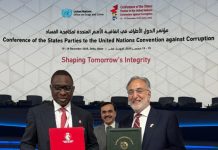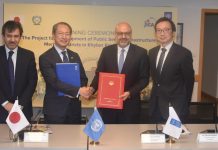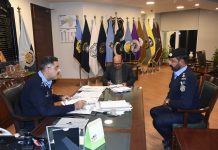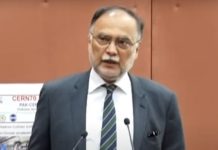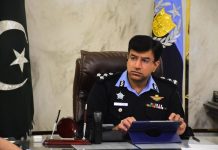By Hina Kiyani
ISLAMABAD: The launch of first ever dynamic National Socio-Economic Registry (NSER) in the history of Pakistan will enhance the country’s capacity to cope with the disasters, pandemic and economic instability by adopting more effective data collection mechanism of the poor households.
The NSER is a landmark in Benazir Income Support Programme (BISP)’s history. It is linked with National Database Registration Authority (NADRA) for data collection as well as validation and can allow swift registration of six distinct types of information for the registry which shall be validated through NADRA.
The six different types include registration of missed out households, eligibility appeal cut off for poor but ineligible households with widows or elderly people, roster updates for regular changes such as marital status, inclusion of new born, changes or correction in education, health, disability and employment information of household members, gauging information on households impacted by disasters and their re-registration, reassessment of ineligible households for last two years and reassessment of eligible or beneficiary households for last three years. The registry provides registration and information update opportunity to all citizens. Since this registry is linked with NADRA, only NADRA authenticated information can be registered or updated.
Besides registration centres, an app will also be launched through Google play store which will facilitate the already registered households in changing or correcting their information.
While, mobile registration is also planned for far off areas which will register household information at their door steps.
It is pertinent to mention here that the NSER which is the scientifically based real-time data collection was launched by BISP to identify deserving families and households across Pakistan and to provide them targeted cash assistance.
The BISP was launched in 2008 as the largest social safety net programme in the country with an aim to provide financial assistance to households living below the poverty line. While initiating the program,me the foremost challenge was the unavailability of reliable data on poverty.
Although the programmes like Bait-ul-Mal and Zakat were functional; however, they too did not possess any scientific data because these programmes were providing financial assistance at a very small scale.
Keeping in view that people were suffering from inflation and needed swift financial assistance, the government started targeting poor households with the help of parliamentarians.
BISP also started exploring options for introducing a scientific based targeting mechanism with the technical assistance of the World Bank.
The targeting mechanism was piloted in 16 districts in 2009 while the successful piloting was followed by nationwide roll-out in 2011. This door-to-door survey resulted in accumulation of data of 27 million households which helped targeting those below the poverty line.
This information collected through door-to-door survey formed the basis of NSER in 2011. The main objective of the NSER was not only to facilitate the targeting of poor households for BISP but also to provide a targeting platform for all social safety organizations in Pakistan.
The database formed in 2012 was becoming obsolete as a number of households could not be included in the programme while with every passing day, their socioeconomic conditions were deteriorating.
Besides there were some households who had graduated from poverty but still they were benefitting from the programme.
Another door-to-door survey was planned in the year 2016 to update the data of 2011. This survey was concluded in 2022 and as a result of this survey, data of 25 million households was collected.
Such door to door survey cost billions of rupees and cannot be re-conducted again. This resulted in a decision of designing a dynamic registry.
Keeping in view all the circumstances, the BISP started working on the design of this dynamic registry which aimed at registering socioeconomic changes in real time.


